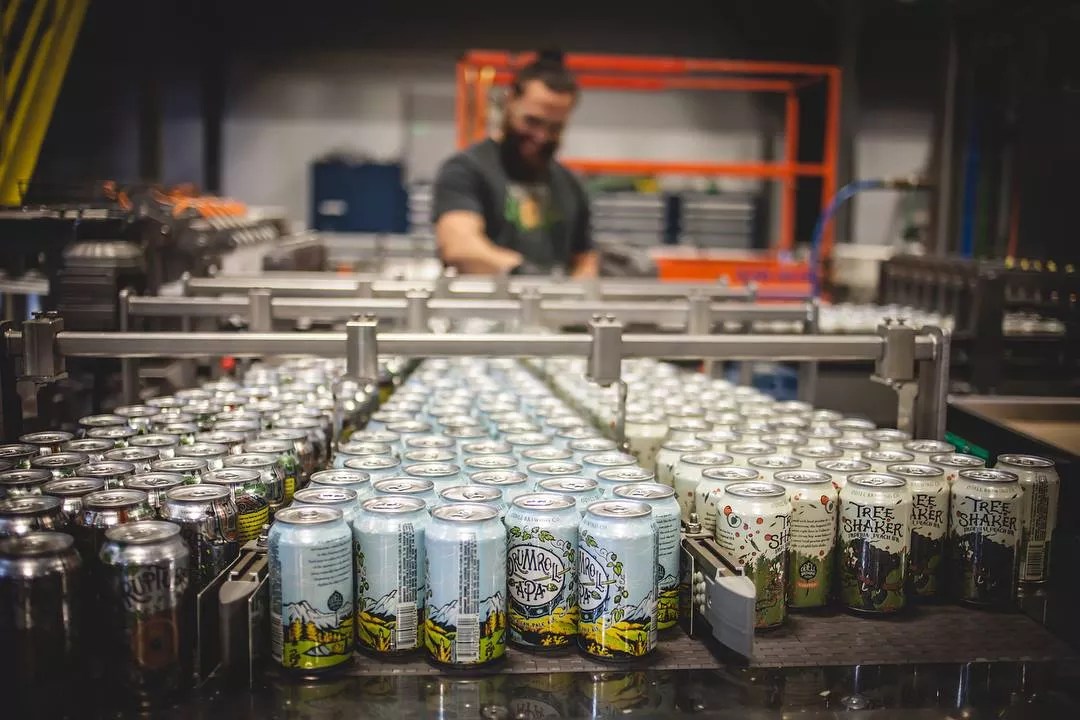
Courtesy Odell Brewing

Audio By Carbonatix
A bill that will adjust Colorado’s excise tax on alcohol for the first time since 1981 is set to be heard on the state Senate floor in the coming days, and the Colorado Brewers Guild hopes the bill won’t pass.
The CBG takes issue with adding costs for craft brewers at a time when the industry is struggling with stagnant growth in sales. But it’s not just costs the brewers take issue with.
Though SB24-181 “Alcohol Impact & Recovery Enterprise” would, by the admission of its sponsors, alter excise tax, the bill describes the amount it will collect from alcohol manufacturers and distributors as a fee. The CBG views that as a way for the bill to avoid going to a vote under the Colorado Taxpayer’s Bill of Rights (TABOR), while its sponsors say a fee is the appropriate terminology since money will be collected specifically to pay for alcohol and related substance use disorder prevention and treatment and would be administered by a new state enterprise.
“We’re creating a new enterprise because we didn’t want to have any further impact on the state budget,” says Senator Chris Hansen, one of the bill’s sponsors.
If the bill passes, the new Alcohol Impact & Recovery Enterprise will be appointed by the governor and be in charge of collecting and distributing the money from the fee. Along with Hansen, Senator Kevin Priola and representatives Chris deGruy Kennedy and Julie Amabile are sponsors.
When the bill was originally introduced, it suggested adding a 16-cent fee per gallon of malt liquor and hard cider distributed in Colorado. That would have tripled the amount brewers pay under the current excise tax of 8 cents per gallon.

Colorado Brewers Guild Executive Director Shawnee Adelson.
Brewtography Project
“Craft beer is flat or in decline right now, depending on who you talk to,” says Shawnee Adelson, executive director of the CBG. “They’re already struggling with keeping their labor force, and that’s something that this bill could definitely impact.”
After the sponsors heard from the CBG and other alcohol producers, the bill was amended to propose charging 2.67 additional cents per gallon. Amounts for wine were reduced from 14.6 cents per liter to 2.4 cents per liter and the fee for spirits was decreased from $1.2 per liter to 20 cents per liter.
Hansen says the bill is desperately needed in Colorado.
“We identified more than $250 million of impact in alcohol-related expenses,” he says. “We felt like we needed to propose a way for alcohol users to help pay for that cost, the same way that we do in marijuana, tobacco and other substances.”
Colorado has the 49th-lowest alcohol taxes in the county, he adds. Though the amount has been lowered, the CBG still isn’t thrilled with the legislation for other reasons.
Why Colorado Brewers Oppose the Bill
“The legislation would allow for these funds to be used for substance abuse recovery that may not be related to alcohol,” Adelson says. “We questioned the appropriateness of funding fentanyl or opioid addiction expenses with craft brewers. … I understand it’s hard to tax illegal drugs to help cover that, but from our perspective, it just seems like that’s not the appropriate way to use these dollars on the backs of craft brewers.”
According to the bill text, there is a strong link between alcohol use disorders and those for other substances, so it is difficult to treat alcohol misuse without allowing for the treatment of other disorders.
In addition, the CBG is still unhappy with the idea that creating an enterprise and calling what they see as a tax a “fee” can exempt legislators from TABOR.
“It sets a precedent that this is an acceptable way to raise funds,” Adelson says. “Regardless of your political leanings, we do have something in Colorado called TABOR, and that’s the law.”
Nelson Research conducted polling of 538 registered voters in the state regarding the proposal. It found 48.9 percent of voters oppose alcohol tax increases while 23.3 support them and 61 percent of people disapproved of labeling this measure a fee instead of a tax.
Lastly, the CBG says the exemptions built into the bill still mean that many local craft breweries will fall under its provisions. Any company that manufactures or distributes more than 100,000 gallons of spirits, 130,000 gallons of wine or 186 million gallons of beer will have to pay the fee. Those amounts were raised as the bill made its way through Senate committees.
Those caps dis-incentivize growth, as breweries that are exempt may try to stay under those amounts, Adelson adds.
“Craft breweries are small businesses, and they have very slim margins,” Adelson says. “That’s something that a lot of people may not understand, as craft beer is quite popular in Colorado, but all of their costs of running their businesses are pretty high, and as we’ve seen with a lot of other small businesses including the restaurant industry, all the inputs have gone up since 2020.”
Inflation and increased minimum wage have made the margins even smaller, and the CBG fears what another economic burden could do to the industry. It may even increase prices for consumers, it warns.
However, Hansen says the estimated economic impact would only raise the price of a six-pack by a few cents.
“It’s very, very small, but it’s going to allow us to pay for treatment programs that are so badly needed as well as alcohol abuse prevention programs,” he says. “It’s clear that we’ve got a massive need for that in Colorado.”
Still, the brewers argue that the alcohol industry is doing its part, having paid around $57 million in excise taxes last year. They suggest legislation to allocate that money toward treatment and prevention instead of adding extra costs.